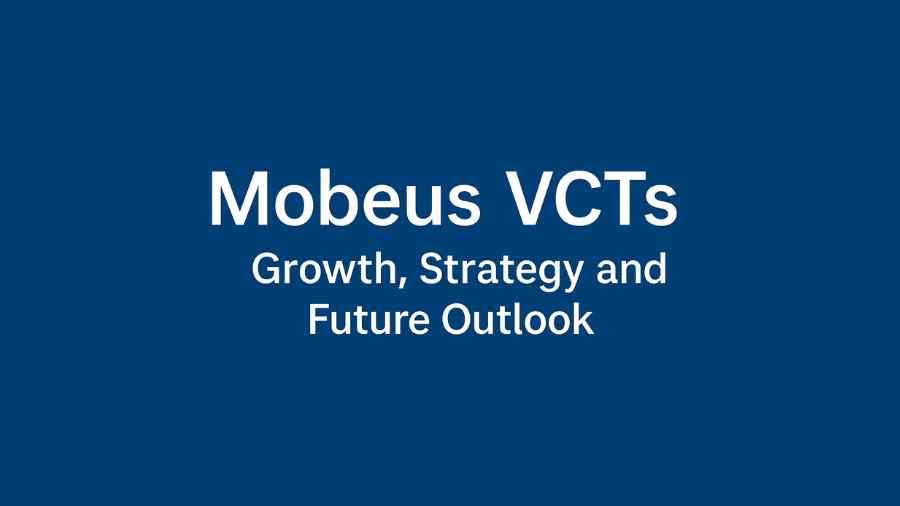Mobeus VCTs: A Deep Dive into the Legacy, Transition and Future of the Trusts

Mobeus VCTs, once a well-known name in the UK venture capital industry, represent one of the most successful examples of how venture capital trusts can help grow small British companies while offering attractive tax benefits to investors. These trusts were created and managed by Mobeus Equity Partners, a specialist private equity firm known for supporting ambitious UK entrepreneurs. Over the years, Mobeus VCTs became a model of consistency, balancing strong returns, solid governance, and a clear investment philosophy that aligned with the goals of long-term investors.
What Are Venture Capital Trusts?
Venture Capital Trusts, or VCTs, are unique investment vehicles introduced by the UK government in 1995 to encourage individuals to invest in small, unlisted companies. These trusts allow investors to earn income tax relief of up to thirty percent on qualifying investments, along with tax-free dividends and tax-free capital gains.
In simple terms, VCTs act as bridges between investors and start-ups. They pool funds from multiple investors and use that capital to support innovative, high-growth UK companies that might otherwise struggle to access funding. The government rewards investors for taking on this higher risk by providing tax advantages, which in turn helps stimulate economic growth and job creation.
The Origins of Mobeus VCTs
Mobeus Equity Partners was established to invest in and nurture the growth of British small and medium-sized enterprises. Over the years, it launched several VCTs — including the Mobeus Income & Growth VCT, Mobeus Income & Growth 2 VCT, Mobeus Income & Growth 4 VCT, and The Income & Growth VCT. Collectively, these trusts managed hundreds of millions of pounds in assets, supporting dozens of early-stage and expanding businesses across the UK.
The firm focused on a balanced investment philosophy: targeting both growth and income opportunities while maintaining discipline in valuations and risk control. The Mobeus VCTs quickly developed a reputation for prudent management and consistent performance, delivering steady dividends and capital appreciation over time.
Acquisition and Rebranding
In 2021, Gresham House, a leading UK-based specialist asset manager, acquired the Mobeus VCT business. This marked a new era for the trusts. The acquisition allowed Gresham House to expand its presence in the venture capital space and combine its experience with the proven track record of Mobeus.
Although ownership changed, the transition was designed to ensure continuity. The experienced Mobeus investment team remained in place, and investors were reassured that the trusts would continue to operate with the same philosophy and rigour.
By 2024, four of the original Mobeus VCTs were merged into two to simplify the structure and reduce administrative costs. The following year, in 2025, they were officially renamed under the Gresham House brand — becoming the Gresham House Income & Growth VCT and the Gresham House Income & Growth 2 VCT. The rebranding reflected integration into a larger group but preserved the same investment approach and management expertise that investors had come to trust.
Investment Strategy and Portfolio Approach
The investment strategy of Mobeus VCTs, now managed under Gresham House, centres around supporting small to medium-sized unquoted UK companies with high growth potential. The trusts maintain a generalist approach, investing across sectors such as business services, healthcare, education, technology, and consumer products.
The team looks for businesses that demonstrate:
- A strong and experienced management team.
- Scalable business models capable of national or international growth.
- Sustainable competitive advantages or unique intellectual property.
- A clear route to an eventual exit, such as a trade sale or IPO.
This hands-on approach allows the team to work closely with founders and boards, providing strategic guidance, growth capital, and operational expertise.
Performance and Historical Success
Mobeus VCTs developed a consistent track record of positive returns. Over a five-year period, their average total return — combining net asset value growth and dividends — placed them among the best-performing generalist VCTs in the UK.
The trusts have achieved several notable exits that significantly boosted shareholder value. Investments such as Preservica, Vectair Systems, and Rotageek generated strong multiples of invested capital, underlining the team’s ability to identify promising opportunities and manage successful exits.
Dividend payments have been a defining feature of Mobeus VCTs. Investors often received annual distributions representing around seven percent of net asset value, providing a steady stream of income alongside capital growth potential.
Even during periods of market turbulence, the management’s cautious approach helped preserve value. By maintaining healthy cash reserves and diversifying across multiple sectors, the trusts remained resilient and ready to capitalise on new opportunities when market conditions improved.
The Transition Period
The merger and rebranding process brought operational efficiencies. By reducing duplication across multiple trusts, management costs were streamlined, which ultimately benefits investors through a lower ongoing charge ratio. Despite administrative changes, the core investment team continued to manage the portfolio with the same philosophy.
The transition also aligned the trusts with Gresham House’s broader sustainability and responsible investment framework. This integration enhances corporate governance, reporting transparency, and environmental, social, and governance (ESG) standards — areas increasingly valued by modern investors.
Strengths of Mobeus VCTs
- Experienced Team
The long-serving management team has deep experience in venture capital and private equity, providing a steady hand through changing market cycles. - Consistent Performance
Historically, Mobeus VCTs have ranked among the top performers in their category, supported by disciplined investment and timely exits. - Diversified Portfolio
The trusts invest across a range of sectors, reducing the impact of downturns in any single industry. - Attractive Tax Benefits
The structure of VCTs continues to appeal to investors seeking tax efficiency, with income tax relief, tax-free dividends, and capital gains exemption on qualifying investments. - Brand Strength and Stability
Integration under Gresham House provides greater operational resources and market recognition while preserving the investment team’s independence.
Key Risks and Challenges
- Illiquidity
The underlying portfolio companies are unlisted, meaning investors must be prepared for long-term commitments without easy access to liquidity. - Valuation Uncertainty
Private company valuations are inherently subjective and may fluctuate significantly depending on market sentiment and performance. - Concentration Risk
A small number of large holdings often represent a substantial portion of total portfolio value, increasing sensitivity to individual company outcomes. - Regulatory Changes
The VCT regime depends on favourable government tax policies. Any reduction in tax reliefs or tightening of qualifying investment rules could affect investor demand. - Economic Environment
Broader macroeconomic conditions such as inflation, interest rate changes, or a slowdown in consumer spending can impact portfolio performance and exit opportunities.
The Current Portfolio Landscape
As of the most recent updates, the two rebranded VCTs collectively manage hundreds of millions of pounds in assets. Their portfolio includes a range of mature holdings alongside new investments in emerging growth companies.
Recent reports indicated robust valuations and a solid cash position, ensuring the trusts are well-prepared to pursue follow-on investments or take advantage of new opportunities. Some notable portfolio companies continue to show strong growth trajectories, particularly in technology-enabled and sustainability-focused sectors.
Dividend policies remain consistent, targeting regular distributions supported by both realised gains and income generation from portfolio companies. Additionally, share buyback programmes continue to offer shareholders a mechanism for partial liquidity.
Future Outlook
The future for Mobeus VCTs, now Gresham House VCTs, appears stable and well-positioned for continued growth. Several factors contribute to this outlook:
- Strong Investment Pipeline: Ongoing access to high-quality deal flow across the UK’s vibrant SME landscape ensures a continuous stream of potential investments.
- Sustainability Focus: Integration of ESG considerations aligns the trusts with evolving investor expectations and government priorities.
- Market Opportunities: Economic uncertainty often presents opportunities to acquire quality businesses at reasonable valuations.
- Operational Efficiency: The streamlined two-trust structure enhances management efficiency and scale advantages.
However, future success will depend on maintaining disciplined investment practices and achieving successful exits from current holdings. The performance of key assets, particularly in the technology and services sectors, will heavily influence returns in the coming years.
Conclusion
Mobeus VCTs represent a compelling chapter in the history of British venture capital. Their journey from independent management under Mobeus Equity Partners to integration with Gresham House reflects the evolution of the UK’s investment landscape — one that balances entrepreneurial ambition with institutional expertise.
For investors, these trusts continue to provide a route into the dynamic world of private company investing while offering attractive tax advantages. Their track record of consistent performance, experienced team, and clear long-term strategy make them a respected choice among UK VCT offerings.



